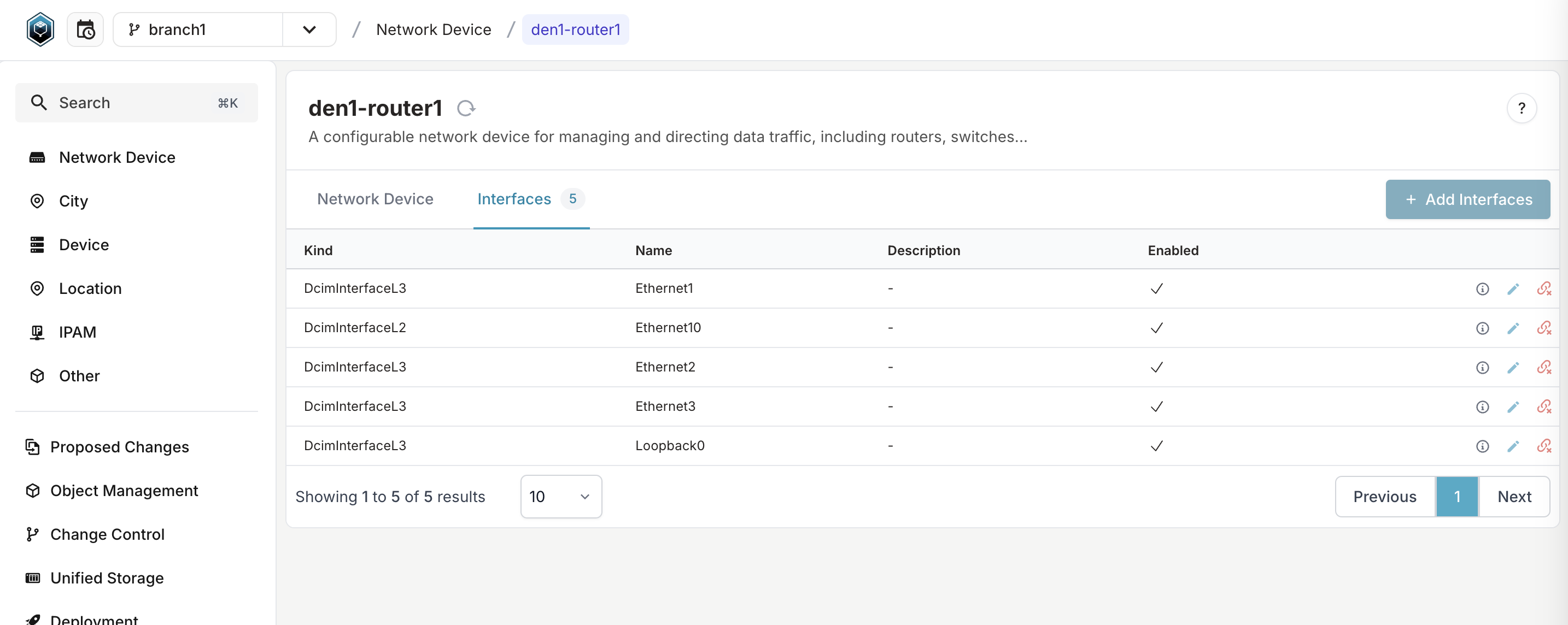Add interface L2
The current schema support L3 Interfaces with potential IP addresses but it doesn't currently support other type of interfaces like L2.
Since we already have a Generic DcimInterface, we can create a new Interface L2 node that will inherit from DcimInterface.
Create a new InterfaceL2 node
Create a new file workshop_b2/lab3/schemas/interface_l2.yml and with the content displayed below
---
version: "1.0"
nodes:
- name: InterfaceL2
namespace: Dcim
label: Interface L2
icon: mdi:ethernet
menu_placement: DcimInterface
display_labels:
- name__value
inherit_from:
- DcimInterface
- DcimEndpoint
attributes:
- name: status
kind: Dropdown
optional: true
choices:
- name: active
label: Active
description: Fully operational and currently in service.
color: "#7fbf7f"
- name: provisioning
label: Provisioning
description: In the process of being set up and configured.
color: "#ffff7f"
- name: maintenance
label: Maintenance
description: Undergoing routine maintenance or repairs.
color: "#ffd27f"
- name: l2_mode
label: Layer2 Mode
kind: Text
enum:
- Access
- Trunk
- Tunnel
There's a file in workshop_b2/lab3/schemas/interface_l2.yml.bak if you want to cheat on this step. Simply rename it to interface_l2.yml
Load the updated schema
infrahubctl schema load workshop_b2/lab3/schemas --branch schema01
Load some additional data
Create new L2 interfaces with the following commands
infrahubctl object load workshop_b2/lab3/data/interface_l2.yml --branch schema01
Explore the new L2 interfaces from the frontend
In the frontend, navigate to the interfaces tab on the device den1-router1.
As shown in the screenshot below we can see that both InterfaceL3 and InterfaceL2 are displayed together.
This is possible because Interface L2 and interface L3 are both inheriting from the same DcimInterface

Explore the new interfaces in GraphQL
In the GraphQL Sandbox, execute the following command
query {
DcimDevice(name__value: "den1-router1" ) {
edges {
node{
interfaces {
edges {
node {
name {
value
}
...on DcimInterfaceL2 {
l2_mode {
value
}
}
...on DcimInterfaceL3 {
ip_addresses {
edges {
node {
address {
value
}
}
}
}
}
}
}
}
}
}
}
}
The command above is using Fragments in GraphQL to retrieve all interfaces in a single list but also access attributes specific to InterfaceL2 or InterfaceL3.